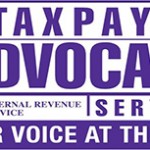Editor’s Note: the following is the IRS Announcement regarding the new and more flexible Offer-in-Compromise to help a greater number of struggling taxpayers make a fresh start. Stay tuned for the analysis.
IR-2012-53, May 21, 2012
WASHINGTON – The Internal Revenue Service today announced another expansion of its “Fresh Start” initiative by offering more flexible terms to its Offer in Compromise (OIC) program that will enable some of the most financially distressed taxpayers to clear up their tax problems and in many cases more quickly than in the past.
“This phase of Fresh Start will assist some taxpayers who have faced the most financial hardship in recent years,” said IRS Commissioner Doug Shulman. “It is part of our multiyear effort to help taxpayers who are struggling to make ends meet.”
Today’s announcement focuses on the financial analysis used to determine which taxpayers qualify for an OIC. This announcement also enables some taxpayers to resolve their tax problems in as little as two years compared to four or five years in the past.
In certain circumstances, the changes announced today include:
- Revising the calculation for the taxpayer’s future income.
- Allowing taxpayers to repay their student loans.
- Allowing taxpayers to pay state and local delinquent taxes.
- Expanding the Allowable Living Expense allowance category and amount.
In general, an OIC is an agreement between a taxpayer and the IRS that settles the taxpayer’s tax liabilities for less than the full amount owed. An OIC is generally not accepted if the IRS believes the liability can be paid in full as a lump sum or a through payment agreement. The IRS looks at the taxpayer’s income and assets to make a determination of the taxpayer’s reasonable collection potential. OICs are subject to acceptance on legal requirements.
The IRS recognizes that many taxpayers are still struggling to pay their bills so the agency has been working to put in place common-sense changes to the OIC program to more closely reflect real-world situations.
When the IRS calculates a taxpayer’s reasonable collection potential, it will now look at only one year of future income for offers paid in five or fewer months, down from four years, and two years of future income for offers paid in six to 24 months, down from five years. All offers must be fully paid within 24 months of the date the offer is accepted. The Form 656-B, Offer in Compromise Booklet, and Form 656, Offer in Compromise, has been revised to reflect the changes.
Other changes to the program include narrowed parameters and clarification of when a dissipated asset will be included in the calculation of reasonable collection potential. In addition, equity in income producing assets generally will not be included in the calculation of reasonable collection potential for on-going businesses.
Allowable Living Expenses
The Allowable Living Expense standards are used in cases requiring financial analysis to determine a taxpayer’s ability to pay. The standard allowances provide consistency and fairness in collection determinations by incorporating average expenditures for basic necessities for citizens in similar geographic areas. These standards are used when evaluating installment agreement and offer in compromise requests.
The National Standard miscellaneous allowance has been expanded to include additional items. Taxpayers can use the miscellaneous allowance for expenses such as credit card payments and bank fees and charges.
Guidance has also been clarified to allow payments for loans guaranteed by the federal government for the taxpayer’s post-high school education. In addition, payments for delinquent state and local taxes may be allowed based on percentage basis of tax owed to the state and IRS.
This is another in a series of steps to help struggling taxpayers under the Fresh Start initiative.
In 2008, IRS announced lien relief for taxpayers trying to refinance or sell a home. The IRS added new flexibility for taxpayers facing payment or collection problems in 2009. The IRS made changes to lien policies in 2011 and expanded the threshold for small businesses to resolve tax issues through installment agreements. And, earlier this year, the IRS increased the threshold for a streamlined installment agreement allowing individual taxpayers to set up an installment agreement without providing a significant amount of financial information.
Related Items:
- Interim Guidance Memorandum for Offer in Compromise
- Internal Revenue Manual 5.8.5.5.1, Income-Producing Assets
Related Posts
OFFICE HOURS:
Monday – Friday 9:00 am to 5:00 pm.
TELEPHONE HOURS:
We attempt to connect you with an Attorney up to 10 PM ~ 7 Days a Week!

"Ask An IRS Lawyer!"
Contact Page & Map to OfficePayment Plans Available






{ 0 comments… add one now }